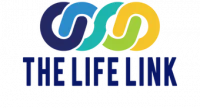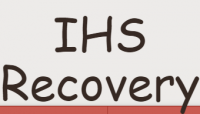
IHS Recovery
Drug Rehab Center in Santa Fe, New Mexico
- Opioid Addiction
- Dual Diagnosis
- Drug Addiction
- Alcoholism
The IHS Recovery center in Santa Fe provides comprehensive and individualized drug rehab programs, combining evidence-based practices with various services such as psychotherapy and family therapy to develop personalized treatment plans that meet a client's individual needs. Clients can progress through different levels of care from detox to outpatient programming until they are equipped with the necessary resources for long-term sobriety.
About IHS Recovery in New Mexico
IHS Recovery is a drug treatment facility located in Santa Fe, New Mexico, that specializes in helping individuals who are seeking to overcome addiction and achieve sobriety. They cater to individuals struggling with alcoholism, dual diagnosis (co-occurring mental health and substance abuse disorders), opioid addiction, and drug addiction. With a mission to provide comprehensive and effective treatment, IHS Recovery offers various levels of care, including outpatient services.
At IHS Recovery in Santa Fe, individuals struggling with addiction can find a range of services and treatment methods to facilitate their recovery journey. The facility offers aftercare support, assisting individuals in maintaining their sobriety and preventing relapses after completing the initial treatment program. Additionally, they provide drug rehabilitation services, which encompass a holistic approach to treat addiction and address its underlying causes. IHS Recovery also offers outpatient levels of care, allowing individuals to receive the necessary support and guidance while continuing to live in their own homes and communities. By emphasizing personalized care and evidence-based practices, IHS Recovery aims to guide individuals towards long-lasting recovery and improved overall well-being.
Genders
Ages
Modality
Additional
Conditions and Issues Treated
With so many people addicted to opioids, we need to help those who want to quit. The cycle begins when opioid addicts take opioids for a painful injury. When someone starts taking their medication differently or in excess, it means they’re addicted and at risk of overdosing.
In , detoxing from these types of treatments is the most effective way to beat this. Most facilities begin with medical assistance and then provide counseling services; rehabilitation follows after successful treatment.
Levels of Care Offered
This center offers a variety of custom treatment tailored to individual recovery. Currently available are Aftercare Support, Drug Rehab, Outpatient, with additional therapies available as listed below.
Alcohol or drug addiction, or co-occurring disorders, are treated in an outpatient program. The patient must attend therapy and other programs at the facility but can return home each night.
Outpatient treatment allows recovering addicts to live at home while receiving addiction treatment. Outpatients can attend group sessions for a few hours per week. Outpatients may also continue to work full time and study/attend school without interruption if they choose.
The accomplishment of completing a drug or alcohol treatment program is just the first step. Once that is complete, aftercare support comes into play. This includes helping people adjust to life without substances outside of guidelines with assistance like getting sober living accommodations and career counseling and AA/NA programs for those who are struggling between sobriety or want continued help in maintaining it once they have completed their initial rehabilitation at an addiction facility.
Aftercare comprises services that help recovering addicts readjust to normal day-to-day activities while working on specific issues. These problems include psychiatric issues, family problems caused by substance abuse, continuing education pursuits if desired during rehab, etc. These can last up to one year+ depending on what’s needed most urgently upon completion of earlier stages.
Therapies & Programs
Different people react differently to various treatment options. Some drug rehabilitation centers offer individualized treatment that caters to the specific needs of a drug addict. The best treatment option varies on an individual depending on the type of drug abused, life history, medical condition of the person, social circumstances, and the environment they live in now.
When a person enters drug rehab, they usually have anti-drug associations such as withdrawal symptoms, stress, cravings, etc. The first step of drug rehab is to detoxify the body from any residual substances in it. Drug rehabilitation centers usually employ trained medical professionals to help in this process. Usually, the initial detoxification lasts for five days, where the person is monitored under close supervision.
Couples therapy is a treatment method used to help couples in which at least one member of the couple has a drug addiction. The treatment is designed to help the couple strengthen their relationship to minimize the effects of drug addiction on their lives and promote healthy communication between them.
Couples therapy can be used whether the addicted partner is using drugs or in recovery. It helps the couple create healthy communication and coping skills to minimize the problem-solving abilities of one partner, which can then be directed at solving issues related to their addiction. It also helps couples address problems that may be related to drug addiction. Couples therapy can help couples feel like a team and not feel like their partner is the problem.
Couples therapy is very challenging for both the drug addict and their partner. It requires an intense commitment between the two individuals to participate in the sessions and the homework assigned between sessions.
An additional benefit of couples therapy is that it can help make other types of treatment, such as 12-step programs, more effective.
Family therapy sessions typically involve the addict and their family members. During these sessions, a therapist will work with everyone involved to help them understand addiction and find healthy ways of coping without substance abuse.
Some addicts might feel embarrassed about their substance abuse problems. By encouraging family members to attend these sessions, therapists can show addicts that they’re not alone in dealing with addiction. Therapists can also work with family members to help them understand addiction and learn how to offer support and encouragement to their loved one as they deal with substance abuse issues.
Attending group therapy at IHS Recovery in , is a useful way for those seeking sobriety to realize they aren’t the only one going through it.
This is when a group of people on different recovery phases get together and talk about what they’re going through, their triggers, successes, and failures. This can include alternative types of therapies too! Group therapy may occur on an outpatient or inpatient basis with groups that have no pre-existing relationships outside the session, unlike support groups where everyone already knows each other beforehand.
This type of cognitive-behavioral therapy helps people understand how their thoughts, behaviors, and feelings are interconnected. It can help patients with borderline personality disorder gain control over their actions and stop self-harming thoughts and attempts.
Cognitive Behavioral Therapy is a type of psychotherapy that helps people address the thoughts and behaviors that may have led to their addiction. It also helps change negative thoughts into positive ones and promotes healthy communication between addicts and those around them. CBT is an efficient treatment for individuals suffering from all sorts of addictions.
Cognitive Behavioral Therapy (CBT) focuses on the underlying thoughts and behaviors that caused the problem of addiction in the first place and may cause a relapse. Negative feelings are common in drug abuse disorders, but they can lead to co-occurring disorders if not recognized. CBT involves strategies that help to change the behavior pattern by restructuring negative thoughts into positive ones. It helps to remove these feelings, and it provides long-term benefits. Also, CBT promotes self-awareness, self-control and can be administered as a mono-therapy or as part of combination therapy.
Payment Options Accepted
For specific insurance or payment methods please contact us.
Additional Details
Specifics, location, and helpful extra information.
Santa Fe, New Mexico 87505 Phone Number(505) 983-1540 Meta DetailsUpdated November 25, 2023
Staff Verified
IHS Recovery Patient Reviews
There are no reviews yet. Be the first one to write one.
Santa Fe, New Mexico Addiction Information
New Mexico has been one of the leading states in the nation when it comes to drug and alcohol use, abuse, and addiction. Opioids are responsible for over 60% of all drug-related overdoses in New Mexico. Alcohol-related deaths in New Mexico are the highest in the nation and almost twice the national average since 2000.
In Santa Fe, NM, 7 out of every 100 people aged 12 or older were dependent on illicit drugs from 2008-to 2009. Marijuana, cocaine/crack, inhalants, and methamphetamine are some of the most common addictions. As per Drug Enforcement Administration, residents of Santa Fe even be more likely than the national average to abuse alcohol or drugs. In Santa Fe, common treatments include detox, residential rehab, and outpatient rehab.
Treatment in Nearby Cities
- Mora, NM (40.8 mi.)
- Alamogordo, NM (191.6 mi.)
- Espanola, NM (23.4 mi.)
- Santa Teresa, NM (266.7 mi.)
- Los Alamos, NM (24.5 mi.)
Centers near IHS Recovery
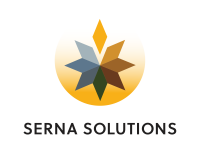
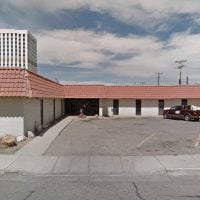
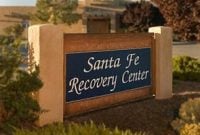
The facility name, logo and brand are the property and registered trademarks of IHS Recovery, and are being used for identification and informational purposes only. Use of these names, logos and brands shall not imply endorsement. RehabNow.org is not affiliated with or sponsored by IHS Recovery.

